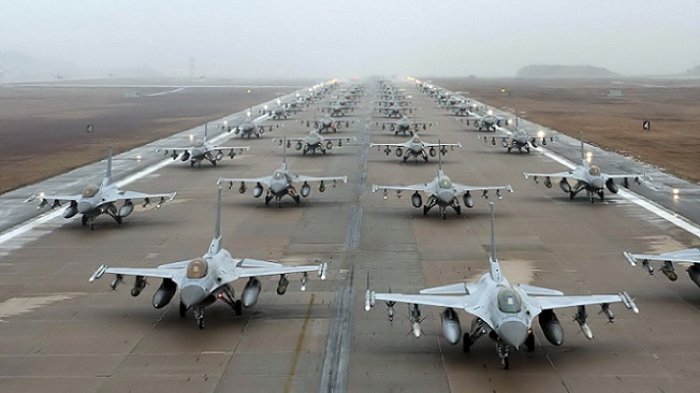TNI AU Strengthens Readiness of Air Defense System for IKN
By: Alan Setiawan)*
The Indonesian National Air Force (TNI AU) ensures the readiness of the air defense system in the Indonesian Capital City (IKN) as a strategic step to maintain the security and sovereignty of Indonesia’s airspace. This step involves various preparations, from the placement of sophisticated missiles to the construction of supporting infrastructure. This addition aims to provide maximum protection for the new center of government.
Indonesian Air Force Chief of Staff, Air Marshal Muhammad Toni Harjono emphasized that strengthening air defense in the capital city is a national priority. The security of the capital city is a shared responsibility. His party is committed to ensuring that every element of air defense is ready to face various threats.
It also plans to install medium and short-range missiles, supported by sophisticated radar to monitor airspace in real time. These missiles will be placed in strategic locations to support more optimal regional security. This medium-range air defense system is planned to be activated gradually and is expected to be fully ready by 2027.
The relocation of the capital to East Kalimantan requires a strategic approach in the defense system. Vital infrastructure, including the center of government, must be protected from all potential threats. The missile system that will be placed in this area is capable of detecting and responding to air threats, both from fighter jets and unmanned drones, which are now a global security risk.
To support this system, advanced radar with early detection capabilities will be integrated into the air defense network in the IKN area. This technology allows real-time monitoring of movements in the airspace, so that any potential threats can be anticipated quickly and accurately.
The Indonesian Air Force also plans to increase the capacity of air bases around the capital city to ensure operational readiness of defense equipment and support sustainable defense logistics. This combination of cutting-edge technology and strategic infrastructure is expected to provide maximum protection for the new capital city and its surrounding areas.
Commander of Dhomber Air Force Base, Colonel Airman Fata Patria, said that air threats are a serious concern for the Indonesian Air Force. Air threats are the most difficult challenge in the context of defense. In addition, air defense is also a major issue related to many conflicts that occur in the world due to pressure in the airspace. Of the three concepts of defense dimensions, namely land, sea, and air, the most difficult is facing air threats. Because the nature of this attack is very fast. If Indonesia can face a very fast attack, then it is certain that it can face sea and land attacks.
Therefore, Dhomber Air Force Base will prepare infrastructure, personnel, and other resources, to jointly support and implement the smart air defense system. In addition to defense equipment, intensive training for personnel who will serve in the IKN is also a main focus. The Indonesian Air Force has designed a training program that includes in-depth operational simulations of the air defense system. This aims to ensure that every soldier has optimal competence and readiness. Personnel readiness is the key to the successful implementation of this modern defense system.
Commander of the VI/Mulawarman Military Regional Command, Major General TNI Rudy Rachmat Nugraha said that the security forces will continue to prioritize three things that are challenges in their duties to maintain security in the East Kalimantan (Kaltim) region. One of them is the development of the IKN which continues to develop and will progress in the future. Various steps including strengthening the air defense system continue to be taken.
This air defense strengthening is carried out in stages, starting with a survey of strategic locations for the placement of defense equipment. Furthermore, the construction of air bases and monitoring posts is a priority, followed by the installation of missiles and radars according to a predetermined schedule. The Indonesian Air Force also involves local communities in the socialization of this program to create synergy between the military, local government, and the community.
However, the program also faces challenges, especially related to the geographical and weather conditions in East Kalimantan. However, security forces are optimistic that careful planning and cross-sector cooperation can overcome these obstacles. The success of this program will be an example for other regions in building a reliable air defense system.
With various strategic steps that have been planned, the Indonesian Air Force hopes that strengthening the air defense system in the IKN can be an important pillar in maintaining the stability and sovereignty of the country. All parties, both at the national and regional levels, are expected to continue to support this initiative in order to create a safe and competitive Indonesian Capital City.
The success of strengthening this air defense system is also expected to be a catalyst for improving domestic defense technology. By involving the national strategic industry, this program not only strengthens security, but also encourages Indonesia’s independence in developing modern defense equipment. In addition, the existence of a reliable defense system in the IKN will send a strong signal to the international world that Indonesia is ready to become a safe, stable center of government and play an important role in global geopolitical dynamics.
)* Postgraduate students living in Bandung
